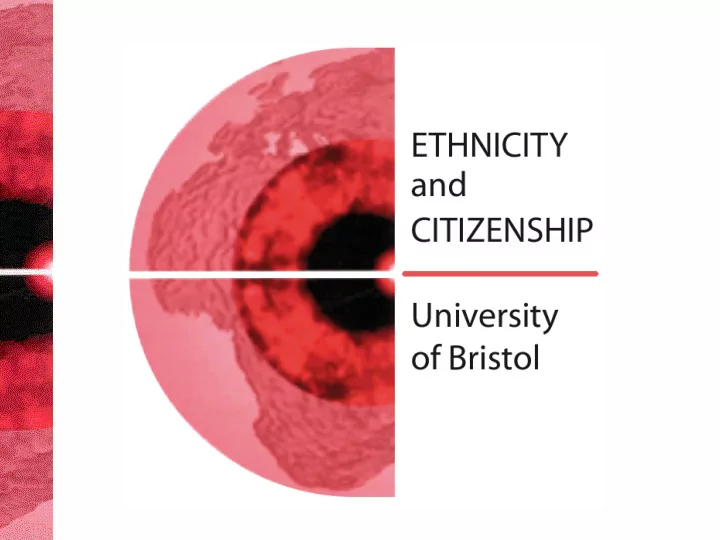

From Anti-Racism/Decolonisation To Religion and Secularism Tariq Modood University of Bristol
Anti-Racism to Religion 1. Anti-Racism as Anti-Discrimination 2. Anti-Racism as Positive Identity Affirmation: i) Turning a negative into a positive ii) Refusing a racialised identity for an ethnic identity iii) Refusing a racialized identity for a religious identity
Islamophobia 1. Racism and Othering (+ positive identity) 2. False Religion 3. Secularism i) As a vale of tears/opium of masses ii) Religion has to be explained in terms of materialism/Enlightenment Rationalism
Religion and Equality • Qs of religious diversity and equality are a natural extension of ethnic diversity and racial equality within multiculturalism • But religion is chosen….? • So civic and institutional space should not always be ‘religion blind’
Two Concepts of Equality 1. i) equal rights, non-discrimination, (eg., if Christians…why not Muslims?) But, note: a) 'equalising downwards' (ie., abolishing Christian provisions b) 'equalising upwards', giving Muslims and others the same provision as currently enjoyed by Christians
Equality (2) ii) equality as respect for difference, which can require differential treatment as the important thing is to focus on a group's needs (as well as on what provision is generally available), eg., Christians have no dietary needs that are met at school, but that is not a reason to deny Muslims and Jews kosher/halal meals
Modes of Secularism 1. Liberal US political secularism 2. Republican French laicite 3. ‘Moderate Secularism’
Moderate Secularism 1. Mutual autonomy, not mutual exclusion or one-sided control 2. Religion is a public good and not just a private good 3. The Church (ie. the organiser of this public good) belongs to the people/country, not just to its individual members
Moderate Secularism (cont) 4. It is legitimate for the state to be involved in bringing out the public good element of organised religion (and not just protecting the public good from the dangers that organised religion can pose) 5. This must be done within liberal democratic constitutionalism.
Beyond Beliefs • Identities/labels of ethnic group - by group and others - Racialisation = ‘ethno-religious’ - Practice or public performance - Institutional adaptation/accommodation
Recommend
More recommend